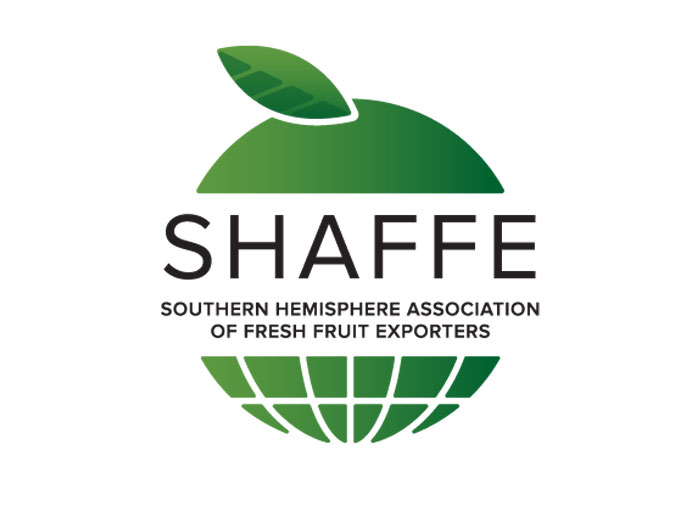CFNA Deputy Secretary General of the Fruit Branch Highlights the Need for Better Learning Opportunities for Today’s Fruit Industry
August 1, 2022 | 4 min to read

Is it our responsibility to create a new leadership generation? – How education may turn the fresh produce sector in a period of crisis
“We need to keep on learning, otherwise we won’t be able to catch up with the speed of the changing consumer demand” – CFNA Deputy Secretary General of the Fruit Branch highlights the need of better learning opportunities for today’s fruit industry.
Background: The global fruit supply chain is likely to be the most complex and fragmented globally. With more than 200 origins and 200 destinations, the global trade amounts to roughly 234 billion USD [1]. Just a few supply chains can keep up with the complexity and internationality of fresh produce supply chains. The current cost hikes and supply chain disruptions have been exposing the sector’s vulnerability in an unprecedented manner across the globe. In the context of the launch of the “Master of International Communications, Marketing and Management for Fresh Produce Professionals”, this summer series visits fresh produce professionals from five different continents, to explore the global needs for the fresh produce industry to heal and come back stronger.
Our first interview partner for this series is Kurt Huang, who is based in Shanghai/China – a city which has been heavily affected by the zero-COVID policy of the Chinese government over the past months. With long lockdowns and a slowdown of public life in spring 2022, this not only impacted Chinese supply chains but had an impact on the fruit sector worldwide. China continues to be a growing import and export market with high level professionalism at production and trade level. However, in order to keep up with rapidly changing consumer demand, China must improve its innovation, quality, and logistics efficiency. Therefore, the Chinese industry is also continuing to look for high-qualified talents to join this industry.
Do we need more targeted approaches to attract high talent in the fruit industry?
When it comes to career paths in the fruit and vegetable sector, it is often a combination of coincidences that has led people into this arena. The career of Kurt Huang, current Deputy Secretary General of the Fruit Branch of the China Chamber of Commerce for Food Stuffs and Native Produce and General Manager of customs broker “Fruitease” has been the result of such a coincidence. Kurt has studied international trade and economics at a University in Shanghai, and he underlined: “I was not aware that there was a business for importing fruit.” His first job was for a Chilean fruit exporter as a personal assistant back in the early 2000s. Since then, he has been working in various positions and becoming what he himself called “one of the earliest fruit white collar worker” in the fruit industry, as back then in China, most people working in the fruit sector had never been to university.
However, in China, things have evolved, and today a university degree is a precondition for a career in the fruit industry. With its evolving complexity, higher academic education has become strategically important for the Chinese fruit industry. Kurt Huang highlights, that economic knowledge and language
are key qualifications that he has acquired during his academic studies, and which are important to his daily operations until today. However, Huang says that the targeted education opportunities are limited.
Global supply chains provide for exciting opportunities and long-lasting friendships
As the fruit industry is highly international and globally interconnected, a career in these industries comes along with great opportunities to work in a highly internationalised environment. Kurt, who originates from a small rural island ahead of Shanghai, says: “Travelling to Peru, Chile, South Africa, or Spain, really opened my mind to other cultures, but especially disguised similarities rather than differences.” This is truly the fun part of the job. ” But the fruit sector has some surprising qualities beyond the economic context. Human relationships and trust are key pillars to navigating highly perishable products through a complex geopolitical environment with technical and SPS challenges. Therefore, friendship is the foundation for good trading relations. Huang underlines further: “The need for fruit every day makes this industry more than sustainable, and the sector will always look for talent to stem the consumer’s wishes. Therefore, the fruit industry is an area where you can work your whole life. “
Better training opportunities must be global and to come from inside the industry
Also in China the need for improvements in innovation, as well as more efficient logistics operations and continuous strive for better fruit quality remains a key area for development. Based on his everyday operations, Huang highlights the ambiguity of the fruit industry, which is very traditional but also changing very rapidly at the same time. With limited holistic training opportunities in commercial and management areas, Huang believes, that sector experts need to give their knowledge back to the uprising leadership generation. The new master’s in International Communication, Marketing and Management is such an opportunity, as it will help the sector to evolve from inside at highest academic level. Once more, Kurt Huang highlights, that next to the complex and holistic academic program, in particular the emphasis on intercultural understanding will help Chinese young professionals to integrate further in this fragmented and highly internationalised business.
The Masters in International Communication, Marketing and Management is specifically designed to cater for fresh produce industry professionals, who are actively involved in the global trade of fresh produce. These industry professionals seek to strengthen their competencies, skills and knowledge in an array of topics that are key to understanding the complexities of the ever-changing global fresh produce industry. The first promotion will start at the 7th October 2022. For more information and registration visit: www.masterinfreshproduce.com
